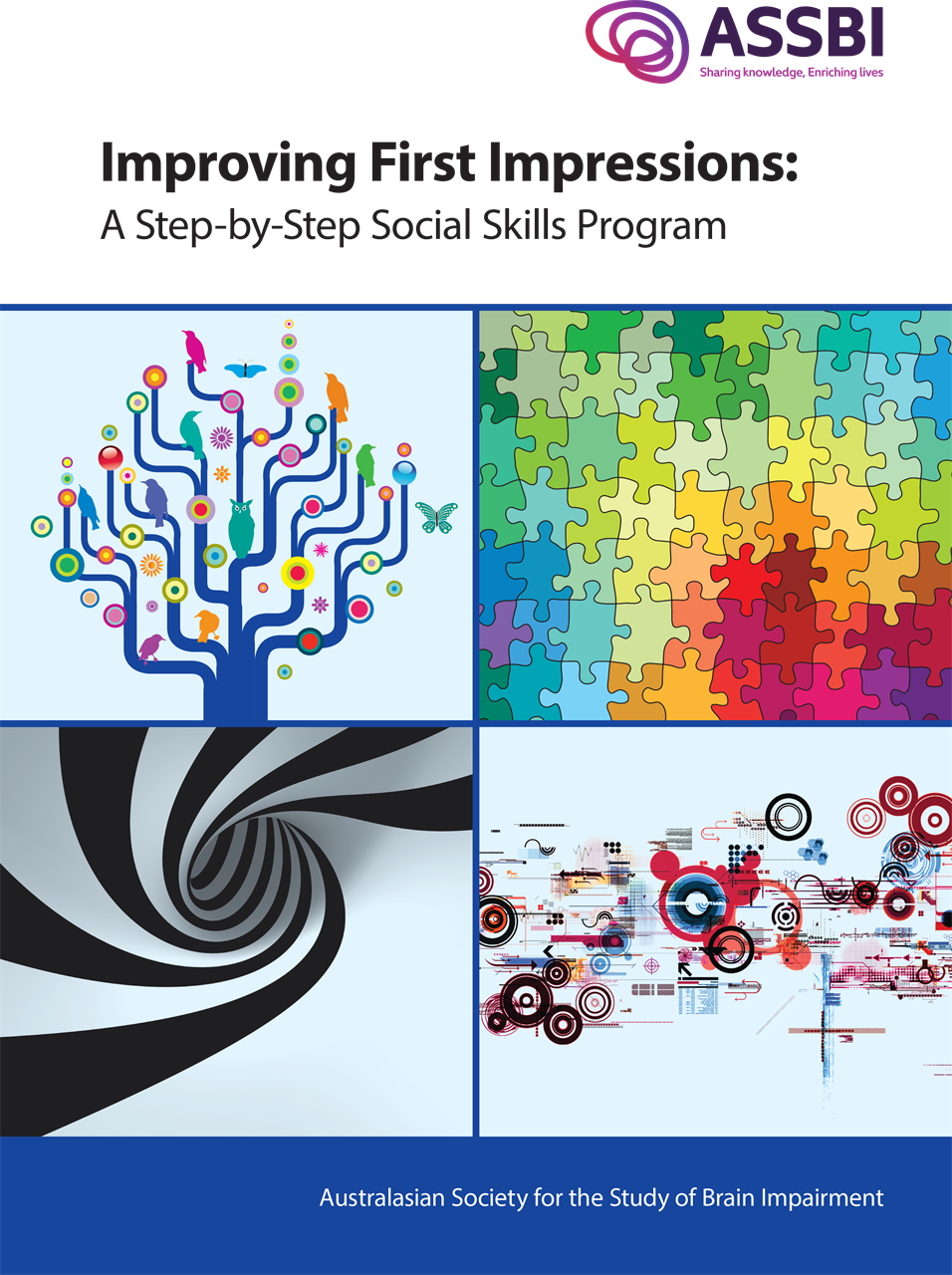| Improving First Impressions: A Step-by-Step Social Skills Program Written by Skye McDonald, Cristine Bornhofen, Leanne Togher, Sharon Flanagan, Paul Gertler & Rebecca Bowen “Improving first impressions” is an empirically tested program developed by Clinical Psychologist Sharon Flanagan and Neuropsychologist Skye McDonald to train or re-train social skills. Initially designed for people with acquired brain injuries it is suitable for any individuals who have cognitive impairments and are in need of social skills training. The program is based upon traditional behavioural principals for increasing prosocial behavior and decreasing antisocial behavior using explicit reinforcement. In doing so, this social skills program bypasses reliance on cognitive skills such as reasoning, abstract learning and executive control, skills that are often impaired by acquired brain damage or developmental difficulties. ‘Improving first impressions’ has been empirically tested and shown to be effective in remediating social skills in people with chronic acquired brain damage in a randomised controlled trial. In this social skills training program, 12 separate sessions address important skills in meeting people and developing and maintain effective conversations. Sessions in ‘Improving first Impressions” address: (1) greetings, (2) making introductions, (3) listening and watching for cues, (4) starting a conversation, (5) developing, maintaining and ending a conversation, (6) topic selection, (7) social training in giving and accepting compliments, (8) being assertive to say No or (9) ask to join in, (10) asking for and offering help, (11) coping with disagreements and (12) a final session to review the program. The social skills intervention is ideally implemented in small groups of two to four participants. This is a cost-effective approach, which provides important peer support for group members and opportunities for vicarious learning. At the commencement of the social skills program, individualised goals for each participant are negotiated and specific behaviours may be targeted for remediation. Behavioural techniques include role-plays, video-feedback and cues to assist self-monitoring. Homework is set each week to enhance practice and generalization of social skills to the home and community. Overall, this program represents an integrated, empirically validated and programmatic intervention for social skills in anyone who has trouble in this area. Treatment can be further enhanced by the inclusion of evidence-based interventions for social anxiety and emotion perception training. If necessary, depression and general anxiety can also be addressed using our stand-alone manual. |




